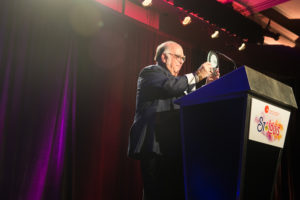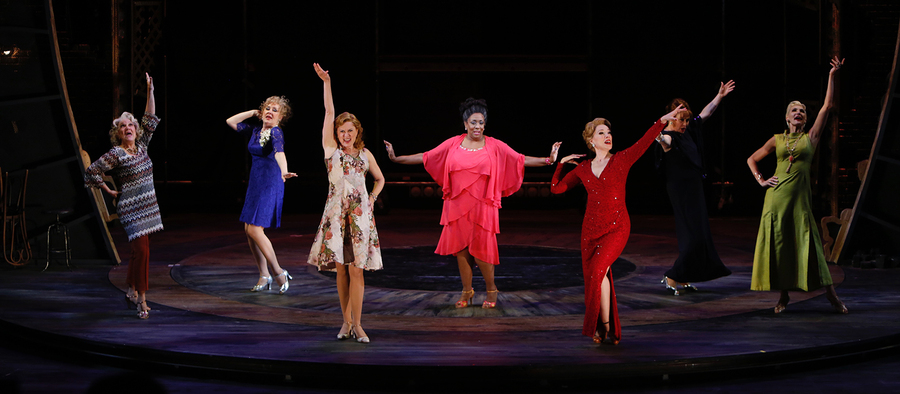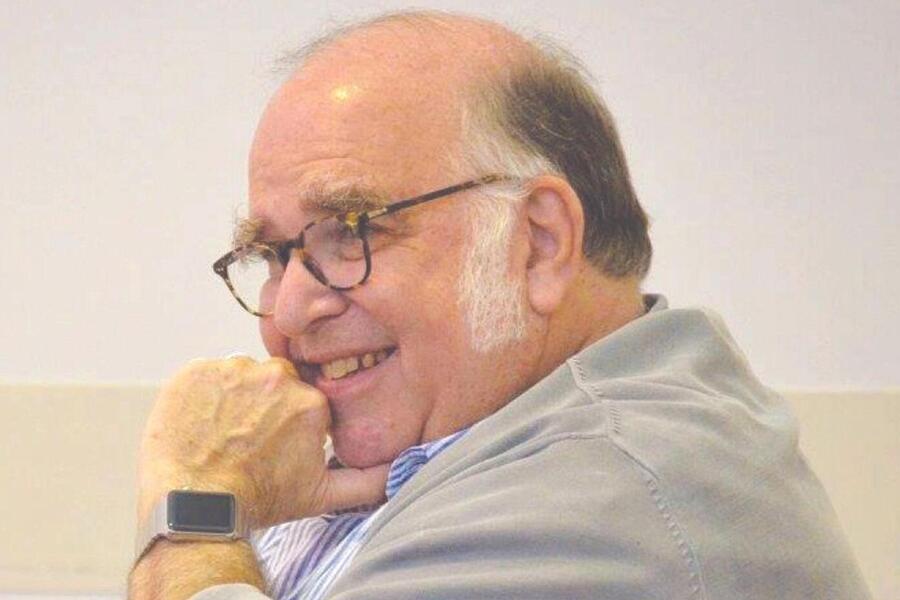Steven Woolf, who led the Repertory Theatre of St. Louis for 33 years as its artistic director before retiring in 2019, died on July 12. He was 75.
In the spring of 2010, Steve Woolf offered to make me the next associate artistic director of the Repertory Theatre of St. Louis. Everyone I knew who had worked at the Rep assured me that working with Steve, the longtime artistic director, was a singular experience in living the joy and excitement that made us all decide to pursue this field. I would be replacing Susan Gregg, the longtime associate artistic director, who had died unexpectedly. When I visited the Rep to interview with Steve I met Mark Bernstein, the longtime managing director, along with the longtime production manager, Edward Coffield, and many others who had been serving the Rep for much of their careers. Why were so many people at this theatre for so many years, walking the halls of the lovely carriage house on Webster University’s idyllic campus with an air of both purpose and contentment? I was soon to learn.
My previous LORT theatre experience involved long, tortured discussions of how to stabilize a subscribership in free fall, how to stabilize a staff with an alarming turnover rate, how to create a connection with a community disaffected by the theatre’s existence, if they were aware of it at all. The Rep was certainly not that.

The staff seemed to show up each day for their avocation. A staple at the Rep was Diversion Wednesday, where we would all get together during the off-season to play games over lunch. A huge army of volunteers selflessly reveled in the privilege to be a part of the company’s process, many of whom became like family to the staff and to guest artists. Steve set the tone, with his determination to make great theatre matched only by his childlike love for the magic it brings.
When I got my hair cut, my teeth cleaned, my groceries purchased, everywhere people would tell me how much they enjoyed the Rep. Artists from New York, St. Louis, and all over described their projects at the Rep—their connection to the Rep—as the most important achievements of their careers. Steve was at the center of it all and the main reason why that was.
Steve had the ability to read his audience and provide them with just the right balance of the popular and the challenging, making every season exciting. The high standard of production value for which the Rep came to be known was his standard, exacted over his extraordinary 33-year tenure by virtue of his sheer joy in the process. He would be at every first rehearsal and first read-through, every tech, every dress, and many performances. You soon realized the main reason was not just to make sure the company’s creative output met his rigorous standard, but because he loved it more than anything else and there was nowhere he would rather be.
He became known for the dinners that were held the evening of first rehearsal at his apartment, located in the Central West End of St. Louis, which always reminded me of Central Park West. The dinners were cooked lovingly by volunteers who were devoted to the Rep, but really to him. Designed as ice-breakers for artists who might not know each other well, they were also Steve’s way of passing a delightful evening filled with good food and theatre artists, his favorite kind of human.
He became known for the theatre reports he posted on Facebook during his numerous trips to New York and London. He took these trips to ensure that the Rep was always presenting the very best new work being offered in the English-speaking world. He sat in a theatre every night of these trips, because there was no place on earth he would rather be. He loved loving what he saw. He loved hating what he saw. He loved telling his many friends and colleagues spread throughout the country all about it.
He became known for loving gadgets, showing off all the things the latest iteration of the iPhone could do and with what alacrity it could do it. If a new iPhone came out, Steve would have it within days.

Perhaps most of all, he became known for the infectious joy that being of the American theatre brought him. The photo at the top of this essay was taken by Jeremy Goldmeier, formerly the longtime public relations and digital media manager at the Rep, at the first read/sing-through of the Rep’s 2016 production of Follies. Follies was a dream project for Steve. Directed by Rob Ruggiero and produced by Steve with the overwhelming amount of loving detail necessary for such a challenging musical to be successful, it was a highlight for the Rep, no doubt for Rob, and certainly one of the highlights of Steve’s life.
There are few productions of Follies at the level of production for which the Rep is known, and so the level of artist prepared to work with us in relatively supporting roles was impressive. Attending that first rehearsal myself, I toggled between watching these wonderful performers capture the heart and spirit of one of the great achievements of the American musical and watching Steve glory at just being there. In that photo you see that glory; you may also glimpse a small piece of him that can’t believe his luck for being dropped into that room in that moment.
I joined the Rep at a time when I was due for a reminder of why I got into this rather difficult and often taxing profession. A dose of Steve was exactly what I needed. This is what it meant to work with Steve: Knowing there was no such thing as walking into his office for a “quick question”—every office visit turned into a long talk about theatre we had just seen, theatre we saw long ago, theatre we’re looking forward to seeing, theatre gossip we hadn’t yet shared; knowing there was no such thing as a tech or dress in which his two or three very incisive notes aren’t followed by “it’s great, it’s just great”; and knowing that what we did, no matter what got thrown in our way, would always have joy, because his joy was so ever present.
Steve envisioned a retirement filled with theatre in New York, London, and St. Louis, for him the three centers for his life’s central activity. He never got to enjoy that. In my final phone call to Steve he did not sound very strong. All the same he was determined to regain his health so he could see theatre again. While his hopes may have been unrealistic, it was inspiring to me to know he still had that unquenchable desire to be in a theatre, the only place he ever really felt at home. In that final conversation he managed to remind me of how he gave me back my love for it: just by sharing his own.
Seth Gordon (he/him) is the director of the Peggy Dow Helmerich School of Drama at the University of Oklahoma. Previously he served as the associate artistic director at the Repertory Theatre of St. Louis.


